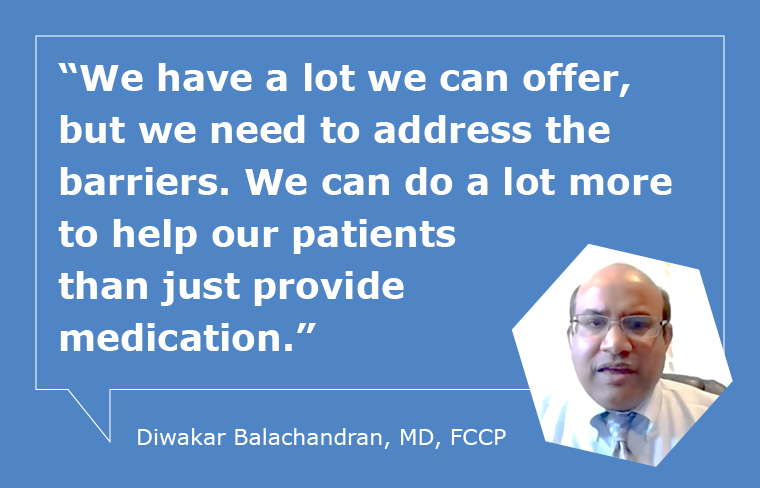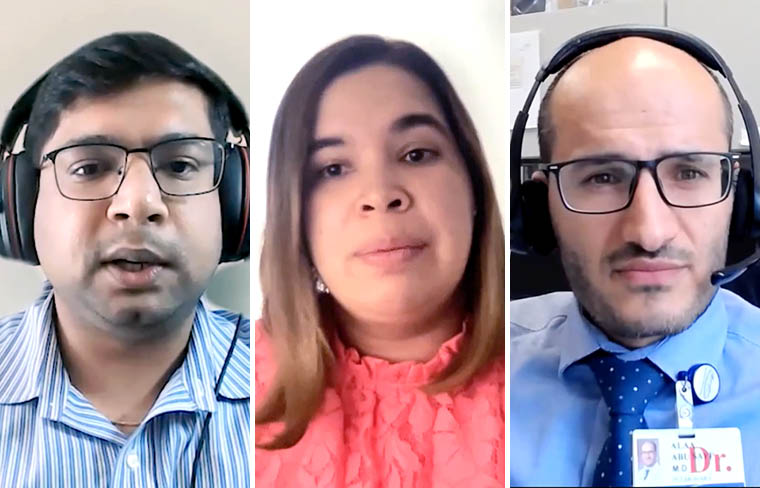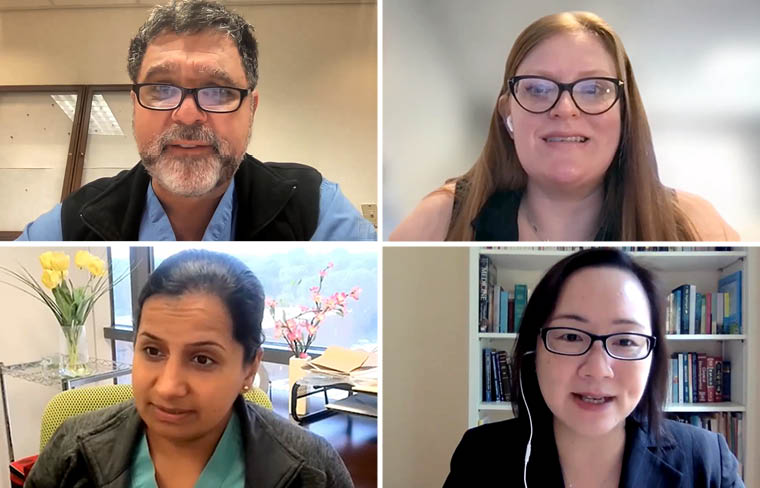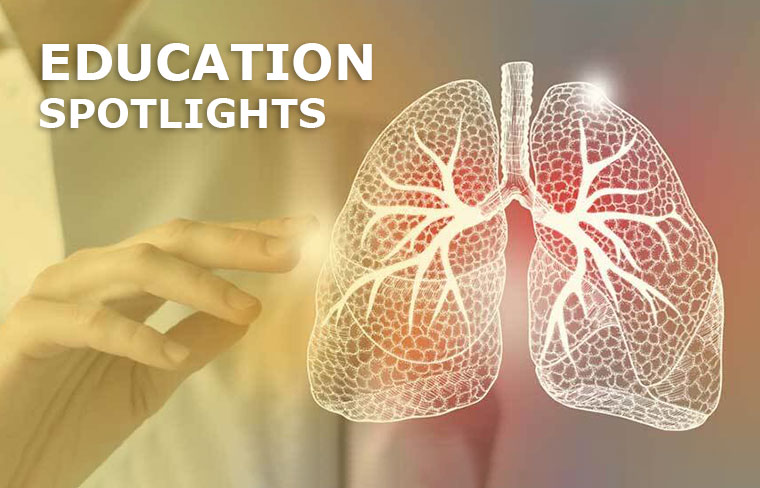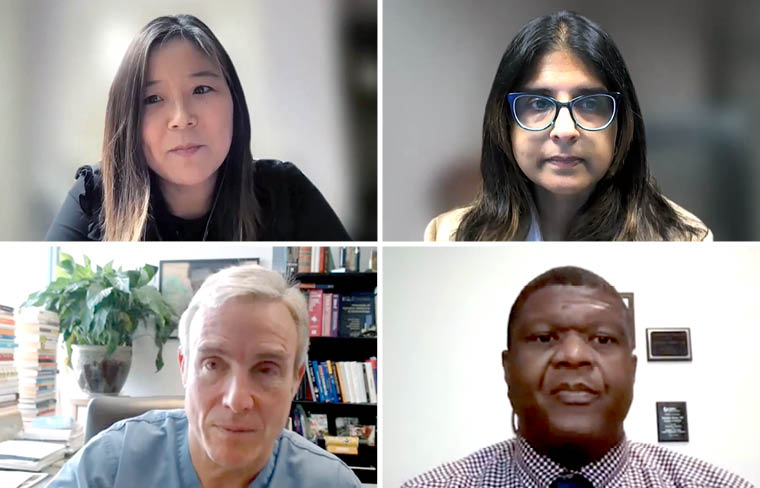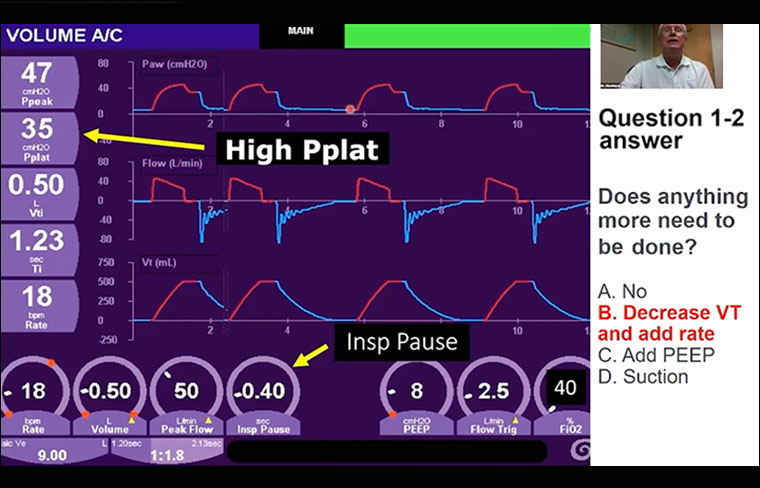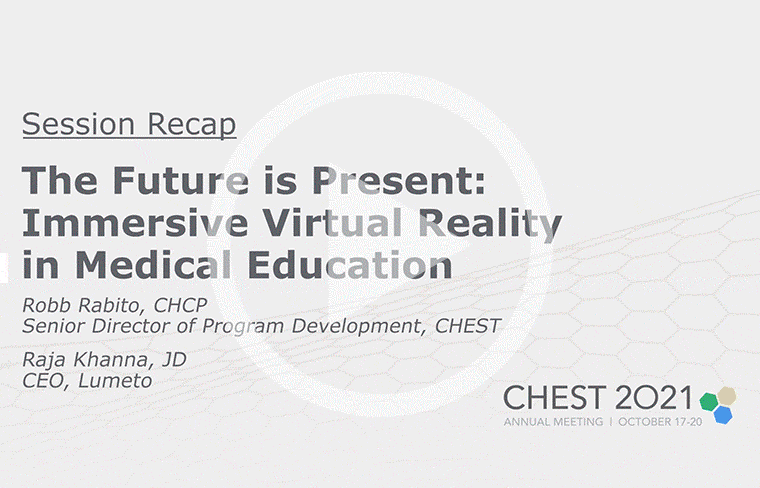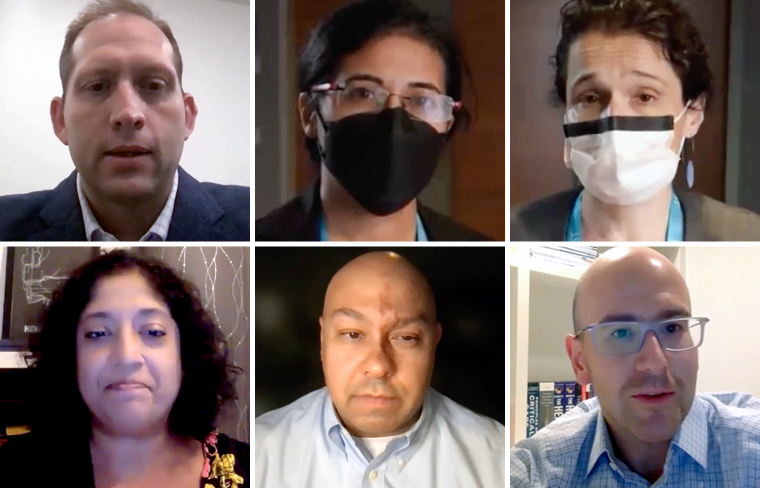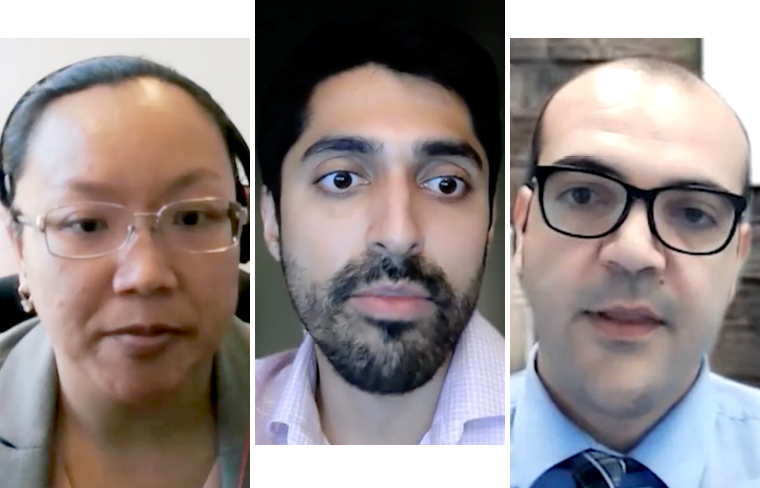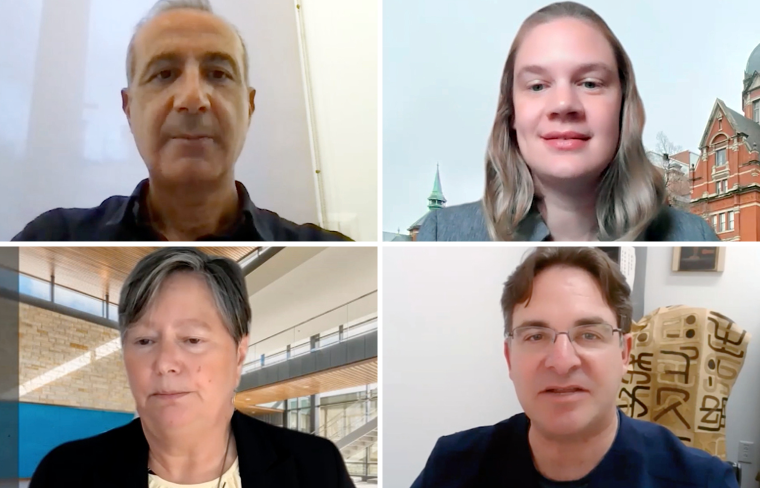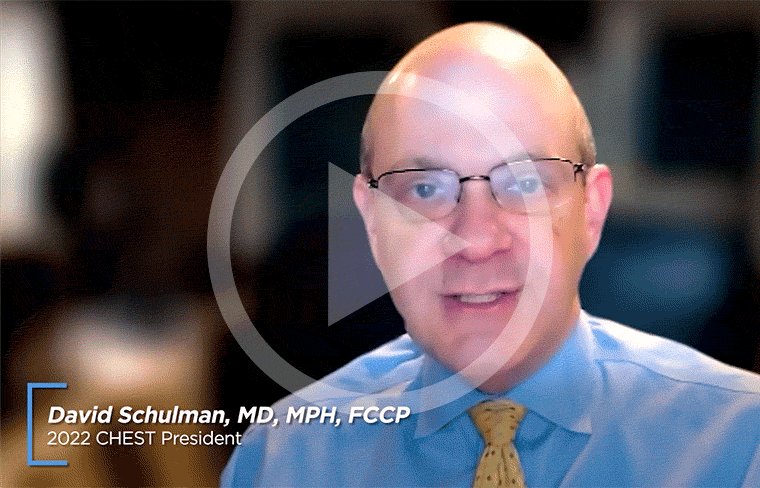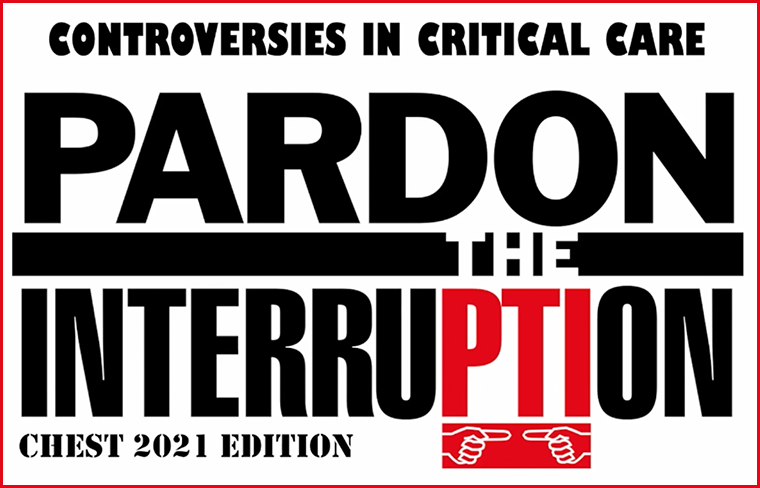
-
Social, cultural disparities affect sleep and sleep medicine
Read More: Social, cultural disparities affect sleep and sleep medicineSleep disorders can have as much, if not more, to do with social, cultural, and environmental factors as clinical factors, experts explained in a session during CHEST 2021.
-
Panel provides update on management of COVID-19 acute and post-infection sequelae
Read More: Panel provides update on management of COVID-19 acute and post-infection sequelae“COVID-19 is more than a respiratory illness. It is a complex, multisystem disease, and it is a moving target,” said Bharat Bajantri, MD, who presented along with Damaris Pena Evertz, MD, and Alaa Abu Sayf, MD.
-
Experts offer tips for leveraging social media and digital scholarship
Read More: Experts offer tips for leveraging social media and digital scholarshipChristopher L. Carroll, MD, FCCP, Nancy Stewart, DO, Sherry H. Chou, MD, and Aarti Sarwal, MD, outlined how to effectively integrate social media into the professional activities of clinicians, educators, and researchers.
-
CHEST 2021 Education Spotlights deliver handpicked sessions to help advance your career
Read More: CHEST 2021 Education Spotlights deliver handpicked sessions to help advance your careerEducation Spotlights—available exclusively to meeting registrants—are curated selections of CHEST 2021 sessions on a particular clinical topic, like asthma, COPD, and pneumonia.
-
Patients benefit from communication, diversity training for fellows, panelists say
Read More: Patients benefit from communication, diversity training for fellows, panelists saySession panelists shared firsthand experiences and resources for incorporating quality improvement, communication, diversity and inclusion, and interpersonal skills training into fellowship programs.
-
Virtual simulation offers insights to graphical analysis of ventilator alarms
Read More: Virtual simulation offers insights to graphical analysis of ventilator alarmsThe session featured seven cases from ICUs around the country, with panelists sharing key tips to help clinicians improve ventilator outcomes and avoid common pitfalls.
-
VIDEO: Virtual reality opens new possibilities in medical education
Read More: VIDEO: Virtual reality opens new possibilities in medical educationA CHEST 2021 session on immersive virtual reality in medical education took attendees behind the scenes of a recent pilot program developed by CHEST in partnership with the VR company Lumeto.
-
Virtual simulation session covers the pearls and pitfalls of thoracic ultrasound
Read More: Virtual simulation session covers the pearls and pitfalls of thoracic ultrasoundThrough real-life case examples and video demonstrations, a panel of experienced sonographers shared important tips to consider and potential pitfalls to avoid when using point-of-care ultrasound (POCUS).
-
New bronchoscopic therapy options may be on the horizon for COPD
Read More: New bronchoscopic therapy options may be on the horizon for COPDA panel of experts at CHEST 2021 discussed the dynamics of current, novel, and emerging bronchoscopic interventions for patients with COPD.
-
‘Best of CHEST journal’ session highlights top papers from 2020
Read More: ‘Best of CHEST journal’ session highlights top papers from 2020The session featured four of the top manuscripts representing some of the most impactful research published in 2020 from the journal’s CHEST’s Critical Care and Pulmonary Vascular content areas.
-
VIDEO: Hand-picked sessions you can watch on demand
Read More: VIDEO: Hand-picked sessions you can watch on demandCHEST President-Elect David Schulman, MD, MPH, FCCP, offers his recommendations for CHEST 2021 sessions you’ll want to catch up on in the coming months.
-
Competitors tackle tough critical care questions in final round of ‘Pardon the Interruption’
Read More: Competitors tackle tough critical care questions in final round of ‘Pardon the Interruption’Colleague-competitors presented their rapid-fire expert opinions on questions ranging from broad approach-based strategies to specific treatment decisions.





